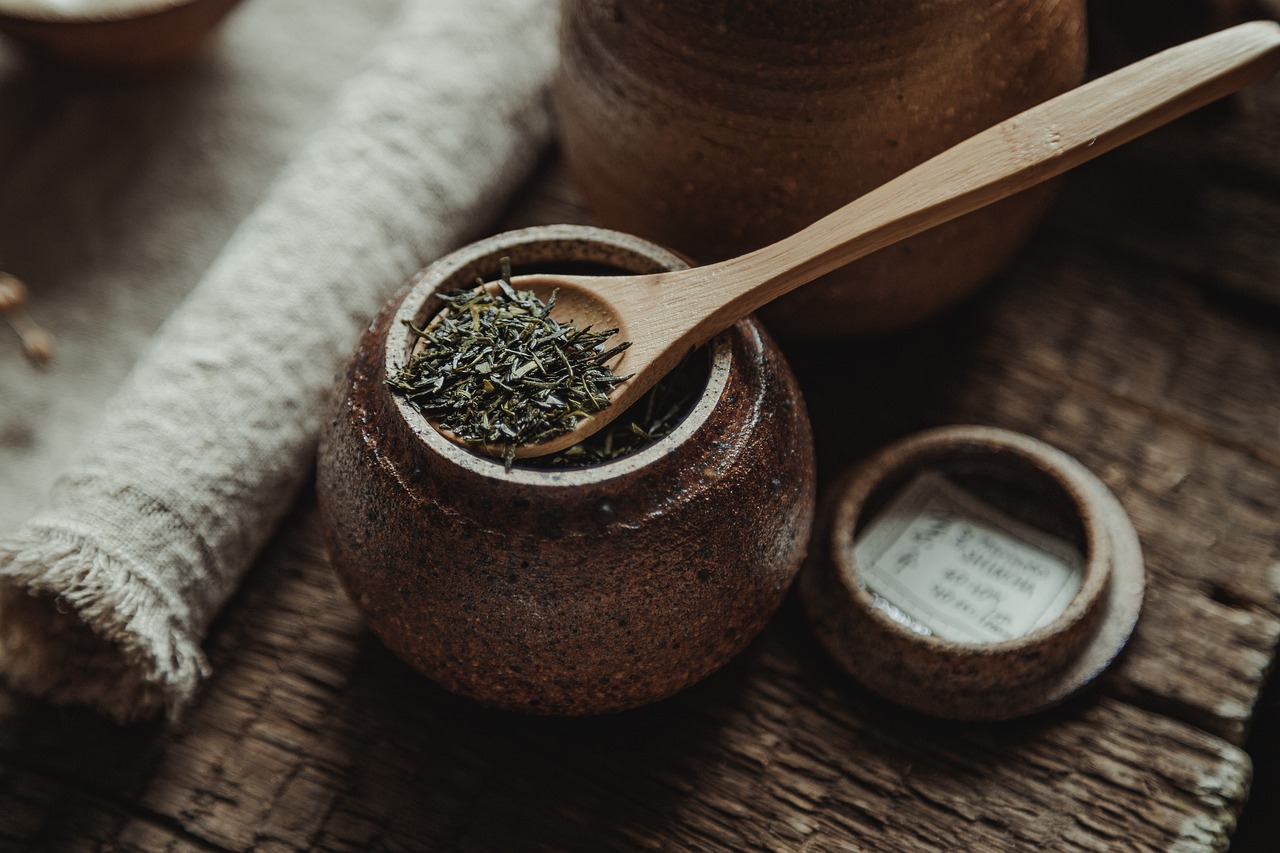Goose Grass Tea: A Relaxing Sip for Natural Wellness
Goose grass tea, made from the herb Galium aparine, offers a refreshing way to boost your health. This herbal drink is not only easy to prepare, but it also comes with a range of health benefits. You’ll find that it has a unique flavor and several medicinal properties that can help with various ailments.

Harvesting goose grass can be a fun activity if you know what to look for. It’s often found in gardens and fields, making it accessible for many. Once you’ve got your hands on some fresh goose grass, preparing the tea is simple and enjoyable.
Whether you’re looking to detoxify or add a new flavor to your tea routine, goose grass tea is worth exploring. It’s a great addition to traditional and modern remedies.
Key Takeaways
- Goose grass tea is easy to prepare and packed with health benefits.
- Harvesting goose grass can be done from common locations around you.
- The tea is known for its unique flavor and medicinal qualities.
Identifying and Harvesting Goose Grass
When you want to gather goose grass for tea, it’s essential to recognize its characteristics and know the best ways to harvest it. This ensures that you collect the right plant and do so in a way that promotes growth.
Proper Identification
To identify goose grass, look for long, slender stems that can rise several feet high. The plant is often found in grassy areas and along roadsides. It has small, greenish-white star-shaped flowers that bloom in clusters. These can help you spot it among other plants.
Goose grass is also known as Eleusine indica. This name may come in handy if you’re looking into herbal guides. Always check for its distinctive leaf shape. The leaves are narrow and can feel rough to the touch, which is another clue that you’ve found the right plant.
Best Practices for Harvesting
The best time to harvest goose grass is in the spring, when the shoots are still young and tender. Try to pick them before they flower for the best flavor and benefits.
When harvesting, use clean scissors or shears to make a clean cut. This reduces damage to the plant, allowing it to grow back quickly. Only take what you need and leave some behind so the plant can continue to thrive.
Make sure to rinse the stems thoroughly to remove any dirt or insects. If you plan to dry the grass, bundle small amounts and hang them in a well-ventilated area, out of direct sunlight. This way, you can enjoy goose grass tea later!
Preparation of Goose Grass Tea
Making goose grass tea is simple and enjoyable. You’ll need to focus on the steps for boiling and steeping the leaves, as well as how to strain the tea and add enhancements if you wish.
Steps for Boiling and Steeping
To start, gather fresh goose grass. Rinse it well under cool, running water. This helps remove any dirt or insects. You can chop the leaves if you like, as it increases the surface area, which can enhance the flavor.
Next, bring about 250 ml of water to a boil. Once the water is boiling, add the rinsed goose grass. For the best flavor, let it steep for about 10 to 15 minutes. This allows the nutrients and flavor to infuse into the water. After steeping, you can adjust the strength by either adding more leaves or steeping longer next time.
Straining and Enhancements
Once your tea has steeped, it’s time to strain it. Use a fine mesh strainer or a tea infuser to separate the leaves from the liquid. Pour the tea into your favorite cup.
Now, for the fun part: enhancements! You can enjoy the tea plain or add some honey for sweetness or a slice of lemon for a zesty kick. If you’re feeling adventurous, try adding ginger or mint for added flavor. Enjoy your fresh cup of goose grass tea!
Health Benefits and Medicinal Properties

Goose grass tea offers a range of health benefits that can support your overall wellness. From helping your body detoxify to promoting skin health, this herbal drink is packed with useful properties. Let’s explore some key areas where goose grass can be beneficial for you.
Detoxification and Lymphatic Support
Goose grass is known for its detoxifying effects. It assists your liver in filtering toxins from your body, making it easier to eliminate waste. This is especially useful if you’re looking to cleanse your system after unhealthy eating or environmental exposure.
In addition, this herb supports your lymphatic system. A healthy lymphatic system helps remove waste and toxins, reducing your risk of infections. Drinking goose grass tea can be a great way to encourage lymphatic flow, which is essential for your overall health.
Skin Health and Wound Healing
If you’re looking for a natural way to enhance your skin health, goose grass tea might be just what you need. It has antioxidant properties that help protect your skin from damage caused by free radicals. This could help reduce signs of aging and maintain a healthy glow.
For wounds and skin irritation, goose grass may aid in healing. Applying it topically or using the tea can promote faster recovery from cuts, scrapes, or conditions like eczema. With its anti-inflammatory properties, it can soothe redness and minimize discomfort, keeping your skin looking its best.
Respiratory and Kidney Health
Goose grass tea can help with respiratory conditions, including asthma. Its anti-inflammatory properties may reduce the irritation of your airways, making it easier to breathe. Many people find that drinking herbal teas helps to relieve respiratory discomfort.
When it comes to your kidneys, goose grass is considered beneficial too. It may assist in preventing kidney stones and supporting urinary tract health. Drinking this tea regularly can help you maintain a healthy balance in your urinary system and may lower the risk of infections.
Using Goose Grass in Traditional and Modern Remedies
Goose grass has been valued in both traditional and modern practices for its various health benefits. This herb has a rich history in herbal medicine and is finding new applications in today’s health-conscious world.
Historical Applications in Herbal Medicine
For generations, people have used goose grass in traditional medicine. It has been recognized for its natural diuretic properties, meaning it helps promote urine production. This quality can be useful for flushing out toxins from the body.
In folk remedies, goose grass was often sipped as a tea. To make this herbal remedy, you can steep fresh or dried leaves in hot water. Many have also used it in poultices to reduce swelling and inflammation on the skin. Its anti-inflammatory properties have made it a go-to for soothing various ailments.
Furthermore, goose grass is a source of Vitamin C, which is important for your immune system. This combination of benefits makes it a staple in many traditional herbal practices.
Integration with Contemporary Healthcare
Today, goose grass is attracting attention from those looking for natural remedies. It aligns well with modern wellness trends that favor natural ingredients. People are using it as an alternative to over-the-counter medications.
Many herbalists and health enthusiasts now sell goose grass in different forms, like teas, tinctures, and supplements. You might be drawn to its anti-inflammatory effects or its ability to support kidney health.
Before incorporating it into your routine, consulting with a healthcare provider can be wise. They can provide guidance on how goose grass fits into your personal health plan and ensure it’s safe for you to use. Having expert advice can enhance your experience with this traditional herb in today’s health landscape.
Safety and Cautions
When enjoying goose grass tea, it’s important to be aware of potential side effects and when to consult a healthcare provider. Taking these precautions can help you make informed choices about your health.
Potential Side Effects
While many people can safely enjoy goose grass tea, some may experience side effects. Common issues may include:
- Digestive Problems: Some individuals may find that it causes mild stomach upset or nausea.
- Diuretic Effects: Goose grass has diuretic properties, leading to increased urination. This can cause dehydration if you aren’t drinking enough water.
- Allergic Reactions: If you are allergic to similar plants, you might also react to goose grass. Watch for any signs of itching or rash.
To avoid any unpleasant experiences, start with a small amount and see how your body responds. Always listen to what your body tells you.
Consultation with Healthcare Providers
Before starting any new herbal tea, including goose grass, it’s smart to check with a healthcare provider. This is especially important for:
- Pregnant or Breastfeeding Women: If you’re expecting or nursing, seek advice to ensure safety for you and your baby.
- Existing Health Conditions: If you have health issues, like kidney problems or you’re on medications, your doctor can help you determine if goose grass tea is right for you.
Being cautious helps you enjoy the benefits of goose grass tea while minimizing risks.
Frequently Asked Questions
There are plenty of questions about goose grass tea and its benefits. Here’s some quick info to help you understand what this herbal drink can offer.
What benefits can I get from drinking goose grass tea?
Goose grass tea is known for its soothing properties. Many people believe it supports hydration and helps with digestion. It may also have mild diuretic effects, which can aid in flushing toxins from your body.
Got a simple recipe for brewing goose grass tea?
Making goose grass tea is easy. Just steep fresh or dried leaves in boiling water for about 10-15 minutes. You can adjust the steeping time for stronger flavor if you like.
Where’s the best place to buy Paragis tea?
You can find Paragis tea online or at local health food stores. Shops that specialize in herbal remedies often have it in stock. It’s also available on websites that focus on natural products.
Is Paragis tea approved by the FDA?
Paragis tea hasn’t gone through the FDA approval process. It is considered a herbal supplement. This means you should use it responsibly and consult a healthcare professional if you have any concerns.
What are people saying about the health benefits of Paragis?
Many users report positive experiences with Paragis tea. They mention feeling more energized and experiencing improved digestion. However, individual results can vary, so it’s good to listen to your body.
What’s the deal with adding Moringa and Guyabano to Paragis tea?
Adding Moringa and Guyabano to Paragis tea can enhance its flavor and health benefits. Moringa is known for its nutrients, while Guyabano is praised for its antioxidant properties. Together, they can make a tasty and healthy blend.

